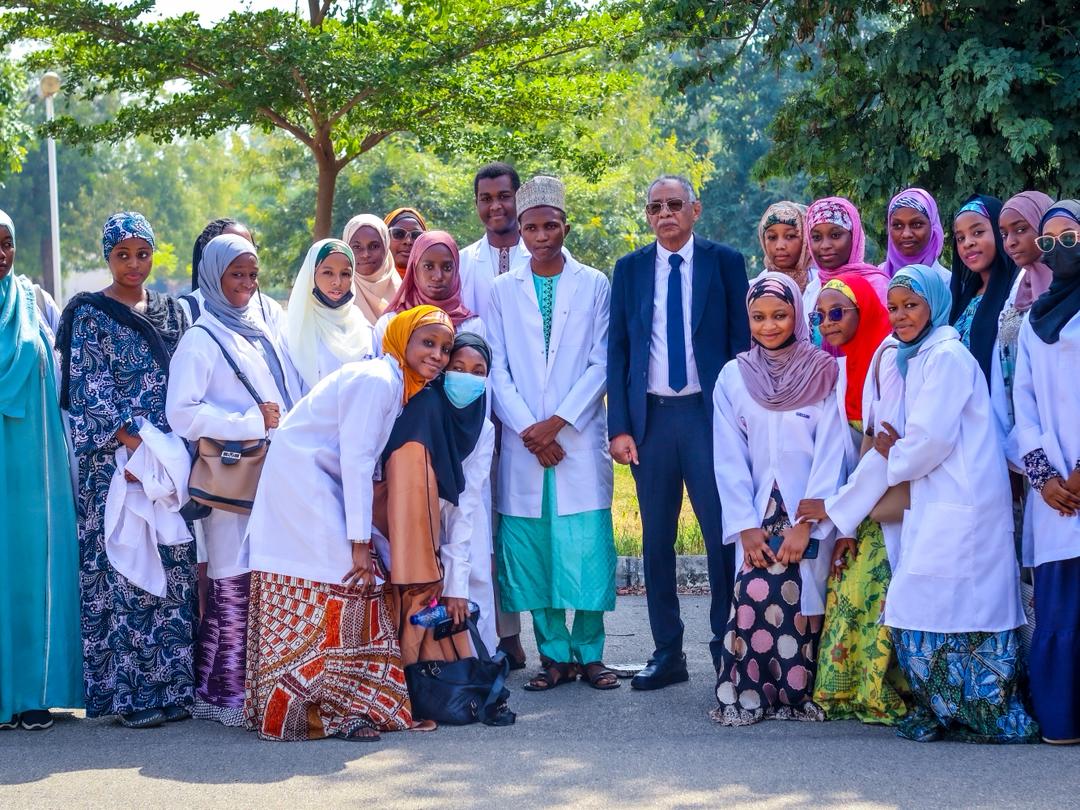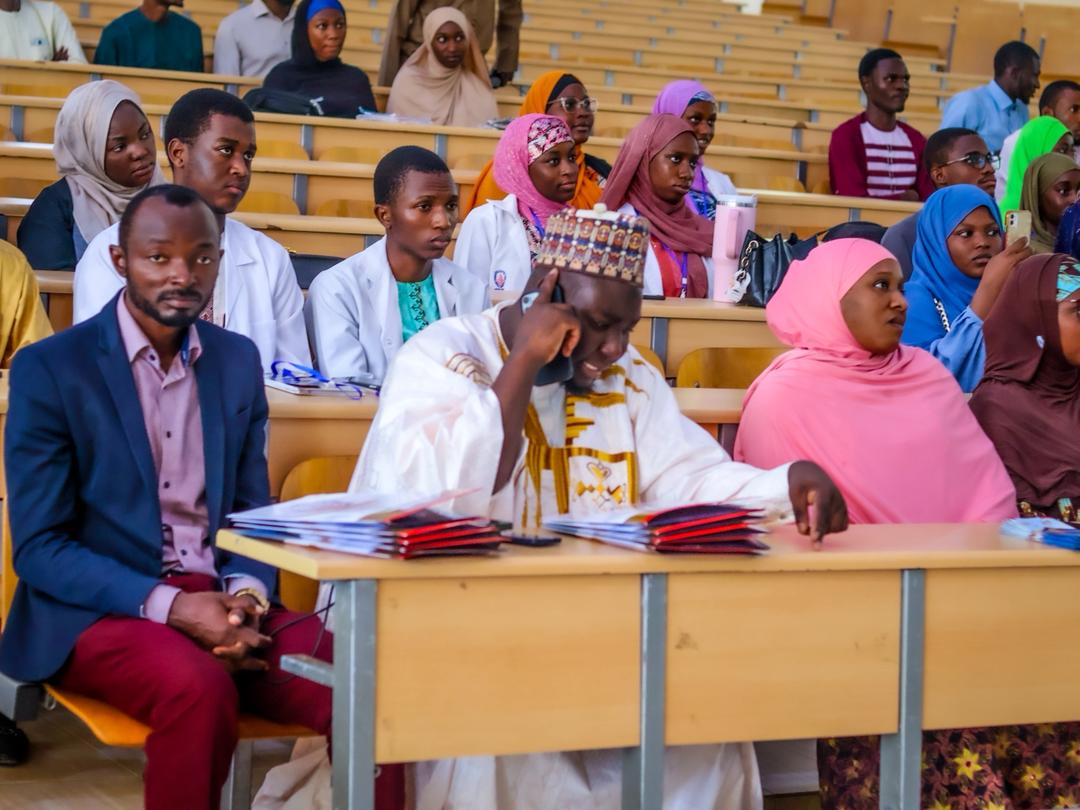 Health
Health
1. Overview & Historical Background
Aminu Kano Teaching Hospital (AKTH) is a federal tertiary healthcare institution located in Kano State, Nigeria (along Zaria Road, Unguwa Uku, Kano).
The hospital was formally established in August 1988 when the Kano State Government handed over the then Aminu Kano Cottage Hospital to the federal government to function as a teaching hospital.
It commenced initial operations at a temporary site (Murtala Muhammad Specialist Hospital) and later (1996-97) moved to its permanent site.
AKTH is affiliated with Bayero University Kano’s College of Health Sciences and serves as its teaching hospital.
The hospital has been built to serve not only Kano State but also neighbouring states (e.g., Jigawa, Katsina, Zamfara, Bauchi) as a referral tertiary centre.
It boasts a 500-bed capacity in many references, and includes multiple clinical departments, support services and research/training roles.
---
2. Mission, Vision & Institutional Role
From its official website, AKTH’s mission is:
> “To provide excellent service, research and training using professional knowledge and appropriate technology, through a dedicated and team-oriented workforce… to treat patients with utmost care and encourage community participation.”
Its vision is to become:
> “A fully functional teaching hospital with state-of-the-art facilities for service, research and training to cater for the needs of the community.”
This sets out three core institutional functions:
1. Service delivery – high quality patient care.
2. Teaching/training – educating medical students, resident doctors, allied health professionals.
3. Research – advancing medical knowledge, especially relevant to the North-West region of Nigeria.
These align with what teaching hospitals globally aim to do: integrate clinical care, academic instruction and research. AKTH, by virtue of its region (Northern Nigeria) and large client base, has additional community-service weight.
---
3. Clinical Services, Departments & Training
AKTH hosts many clinical and support departments. Among the referenced ones are: Internal Medicine, Paediatrics, Obstetrics & Gynaecology, Surgery, Ophthalmology, ENT, Dental & Maxillofacial Surgery, Radiology, Histopathology, Chemical Pathology, Haematology & Blood Transfusion, Medical Microbiology.
Training and academic structure: AKTH trains undergraduate medical students of Bayero University, post-graduate resident doctors, house officers, various allied health professionals (lab scientists, pharmacists, physiotherapists, optometrists) as indicated in studies.
Some service/achievement highlights:
AKTH recorded the first successful kidney transplant in a government hospital in Nigeria in 2002.
It serves a large population: one study noted outpatient attendance in 2006 of ~194,000 and inpatient ~10,236 in that year.
Specialized units: It’s noted as a centre of excellence in nephrology, endoscopic surgery and radiodiagnosis.
From patient services perspective:
The hospital provides Accident & Emergency, general outpatient department, antenatal & delivery services, blood donation centre, specialty clinics.
A research article describes the Family Medicine department with ~600 new adult patients/week, showing the volume and complexity of services.
Thus, AKTH is more than a general hospital—it is a referral teaching institution with multi-specialty service, a high patient load, academic/training responsibilities and regional impact.
---
4. Regional Importance & Community Relevance
AKTH’s significance in the North-West region of Nigeria cannot be overstated. Kano is a densely populated, commercially important city and the hospital serves not only the city but many surrounding states. For many patients, it is a major referral point when secondary hospitals cannot cope with complexity.
The hospital’s presence also helps reduce medical tourism (people travelling abroad for care) as highlighted in recent infrastructure upgrade announcements: The hospital is part of a broader strategy to upgrade healthcare in Kano and reduce overseas medical travel.
AKTH also supports research and training, which helps build local human capital—medical specialists, researchers, allied health professionals—thus contributing to regional health system strengthening.
From the societal angle: being a public/federal institution, AKTH carries a mandate of access and service for all, including underserved populations in the region, which ties into public-health goals of equity and capacity in Nigeria.
---
5. Infrastructure, Upgrades & Future Outlook
Infrastructure: The hospital website and news sources list a 500-bed teaching hospital with state-of-the-art aspirations.
However, being a large tertiary public hospital in a resource-limited context means there are ongoing infrastructure and capacity needs: equipment upgrades, staff expansion, research facilities all require attention.
Recent strategic upgrades:
Projects approved in 2025 include a cardiothoracic centre, paediatric complex, radiology department renovations, students’ hostel for nursing students. These are part of efforts to enhance AKTH's capacity and turn it into a world-class institution.
These investments indicate a forward-looking trajectory for AKTH, aligning with its mission/vision.
---
6. Strengths, Achievements & Value Proposition
Strengths:
Institutional affiliation with Bayero University ensures strong academic linkage and training culture.
Long-standing service history in the region with major achievements (kidney transplant, specialist units).
Referral centre status means exposure to complex cases, which enhances training quality and institutional significance.
Ongoing upgrade projects suggest promising future capacity and improved patient service.
Strong mission orientation to integrate service, research and training for community benefit.
Achievements to highlight:
Early kidney transplant (~2002) in a Nigerian government hospital context.
Serving enormous patient volumes in outpatient and inpatient settings—a critical social health service in Northern Nigeria.
Recognised clinical departments, training units and emerging research culture.
Given those, AKTH provides value not just to patients, but also to medical trainees (students and residents) and researchers in the region.
---
7. Challenges and Areas to Note
No institution is perfect. Some of the challenges and caveats for AKTH include:
High patient load and potential for congestion: Given the referral nature, waiting times and access could be constrained. A patient-satisfaction study at AKTH noted issues of waiting time, access, payment and guidance.
Infrastructure and resource limits: Like many public teaching hospitals in Nigeria, maintaining state-of-the-art facilities, staff retention, and modern equipment is an ongoing challenge.
Staffing and training pressures: With high volumes and multiple responsibilities (clinical, training, research) staff workload can be heavy and may affect service quality.
Equity and access: As service expands and costs/infrastructure evolve, ensuring the poorest continue to access high-quality care is a constant policy challenge.
Such large institutions may face bureaucratic/administrative delays especially in public context, which may affect patient experience or innovation pace.
Being aware of these helps in understanding the real lived context of AKTH rather than idealised reputation.
---
8. Implication for Students, Researchers, Patients & Community
For medical/health students and trainees: AKTH offers a training ground with large case volumes, specialty exposure, teaching affiliation (Bayero University) and a regionally prominent environment. For you—if you were considering health sciences, clinical training, allied health—it is a very relevant option.
For researchers and academics: The hospital’s involvement in research, existence of research units, and high patient numbers offer opportunities for epidemiological work, specialist research (e.g., in infectious disease, nephrology, endoscopic surgery). The upgrade roadmap suggests even more opportunities coming.
For patients and community: AKTH provides access to tertiary medical care, which in Northern Nigeria means caring for conditions that may otherwise require travel or removal from region. Its upgrade means increased local capacity, potential reduction in medical travel and improved outcomes.
---
9. Future Outlook & Strategic Positioning
With the recent government approval for major projects (cardiothoracic centre, paediatric complex, radiology upgrades) AKTH is positioned to grow into a regional hub for advanced health care in West Africa.
If the hospital successfully implements these upgrades, the implications include:
Reduced overseas medical travel for Nigerians (especially from the North).
Attraction of more specialist staff and improved research/teaching infrastructure.
Improved health outcomes in Kano region and neighbouring states.
Enhanced role in public health, training and possibly medical tourism in the region.
For stakeholders (patients, students, government), this is an exciting trajectory—but implementation will matter (timing, funding, staff, maintenance).
---
10. Concluding Summary
Aminu Kano Teaching Hospital (AKTH) stands as a cornerstone of tertiary healthcare, medical education and research in Northern Nigeria. Established in 1988 and affiliated with Bayero University, it fulfils a triple mandate: service, training and research. With a 500-bed capacity, multi-specialty departments, large patient volumes and regional referral scope, it plays a vital role in the health system.
Its mission and vision reflect ambition to serve the community with excellence using professional knowledge and technology. Its strengths include longstanding service, training culture, specialist achievements and ongoing upgrade plans. Challenges remain—as they do for any large public teaching hospital in a resource-constrained environment—but AKTH’s strategic positioning and upgrade path offer promise for the future.
For you, Umar bin Isa Africa, whether you’re thinking of health-sector engagement, community service, or simply recognising the healthcare environment in Kano, AKTH is a major institutional player worthy of your awareness and respect.






